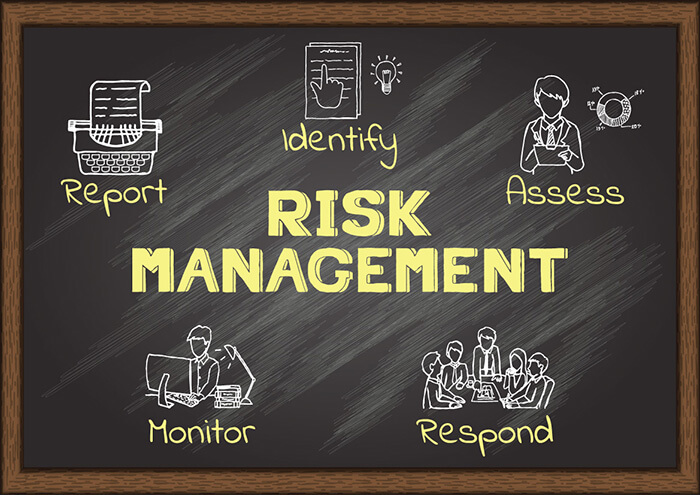I sat at home the other night watching more of the tragic (and sometimes triumphant) news reporting from Texas in the aftermath of Hurricane Harvey and couldn’t help but shake my head as a litany of “what ifs” tumbled through my mind.
What if that happened to my family …?
What if I chose to ignore mandatory evacuation orders …?
What if I lost my home and virtually all my possessions …?
What if I didn’t have insurance …?
What if I found myself completely destitute and needing to rebuild my entire life …?
It’s human nature, when something terrible impacts others, to think, “There but for the grace of God, go I …” And now, with another monster storm, Hurricane Irma, bearing down on the U.S. with Category-5 winds, the importance of preparedness comes into laser-sharp focus once again.
Beyond current meteorological misery, we’re all aware our world is at a heightened state of unrest (Paris, Barcelona, Charlottesville, etc.). Additionally, the U.S. Department of State has upgraded its travel warning to one of our border neighbors to the south due to heightened criminal activity driven by the country’s drug wars. This alert includes many of the highly popular, coastal tourist destinations.
What if you were managing a meeting or event in any of those locales when crisis struck? What would you do if, suddenly, your guests were ordered to stay off the streets and remain sheltered in their hotel rooms? How would you handle matters if transportation to and from airports was suspended and flights were cancelled? God forbid one of your attendees got injured in a melee they accidentally stumbled upon or there was a major labor strike that impacted your program.
You simply must have a plan in place! “Woulda-coulda-shoulda” regrets are never more painful than when we must admit, in retrospect, we didn’t have a contingency plan in place.
Harvey Havoc
Did/do you have a program on the books that was originally planned for the Houston area? Now what?
In a little more than a month, dynami group is scheduled to execute an incentive program in southeast Texas that involves 30 of our client’s top customers at a historic, old hotel for a long weekend of sportfishing. Sadly, one of the distinctive architectural towers at the property was toppled by Harvey and there was other significant damage. At present, there are no guests staying at the hotel but management says they’ll be up and running by showtime. Fortunately, the charter vessels we’d booked from the fishing fleet seem to have survived the storm and the captains tell us we’re a go. Immediately after Harvey made landfall, we turned to our pre-prepared contact list to ensure we could get a timely status and report back to our client.
Cue the sigh-of-relief sound effect …
All of us in the meetings and events industry – whether planner or client – own the responsibility of contingency planning. Yes, it’s that much more work on an already lengthy To-Do list. Yes, the likelihood of disaster is generally a long-shot and it’s often tempting to let this task slide. But it’s something that could be the difference between life and death.
It’s that important. And, of course, the worst generally seems to occur when we least expect it.
Now that I’ve got your attention …
Solid contingency planning actually begins during contract negotiations with your meeting or event venue. That’s the time to put everything on the table and assess the likelihood of risk. Ask about on-staff security personnel, emergency evacuation plans, availability and proximity of quality medical facilities, safety certificates and ratings, local police and fire departments, etc.
And of course, factor in severe weather.
If a storm (such as Harvey or Irma or Jose or Katia) seems imminent but you and your client decide to forge on with your program, be sure you’ve got specific force majeure language written into the contract. For instance, specify the hotel will waive all F&B minimums and attrition penalties in the event weather significantly impacts attendance or an aspect of the actual program. This minimizes your financial exposure should the worst occur.
Again, get everything in writing in advance or you’ll be weathering a different kind of storm that could be quite costly!
WWYD?
Another critically important part of solid contingency planning is developing a formalized emergency response strategy. Talk through potential scenarios and know what steps you would take for each situation. This includes a communication plan, as well as phone numbers and/or email addresses for all attendees and, of course, your support team. You may also want to have a next-of-kin identified for each person. If wifi or cell service is down, how will you disseminate critical information to your team and your group? What happens if the power goes out? Consider all of these when planning.
Personally, I always have emergency contact info in paper form on my person whether it’s during a business session, a dine-around, free-time activities, etc. For my own peace-of-mind, I want to know who to call in a crisis situation.
Finally, review your contingency plan with all key parties, including your client. Get their buy-in and involvement. Trust me, you’ll earn brownie points for being pro-active and thinking things through to ensure their program is protected.
We have one client that not only gets involved in contingency planning but participates in a daily safety briefing with their on-staff Director of Safety actually taking the podium for a few minutes each day to deal with everything from the closest fire exits to sunscreen reminders. He covers it all.
In the wake of a crisis, document details as soon as possible. Write down circumstances, actions, people involved and how the situation was addressed and resolved. These details can quickly fade from memory so it’s important to capture them when your recall is freshest.
Above all – and this is critical – stay calm. Did I say “stay calm”? Yes, I did. I said, “Stay calm”. This will carry over to your attendees and managing a crisis situation will go a lot more smoothly. Composure and panic are contagious. Choose the former, not the latter.
CONCLUSION
When it comes to meetings and events, pro-active contingency planning today can help you avoid a disastrous tomorrow. Better safe than sorry!
As always, I’d love to hear your thoughts. (comment below)
Cheers,
P.S. – On a side note, please consider a donation of money, blood or supplies to any of these charities to help our friends in Texas and Louisiana get back on their feet in the post-Harvey recovery period:
- American Red Cross: https://www.redcross.org/donate/hurricane-harvey
- Salvation Army: https://give.salvationarmyusa.org/site/Donation
- Catholic Charities: https://catholiccharitiesusa.org/donate-to-hurricane-harvey-relief
- Samaritan’s Purse: https://www.samaritanspurse.org/disaster/hurricane-harvey/
- The Justin J. Watt Foundation: https://www.youcaring.com/victimsofhurricaneharvey-915053
And don’t forget our furry friends!
- SPCA of Texas: https://www.spca.org/hurricane-harvey





